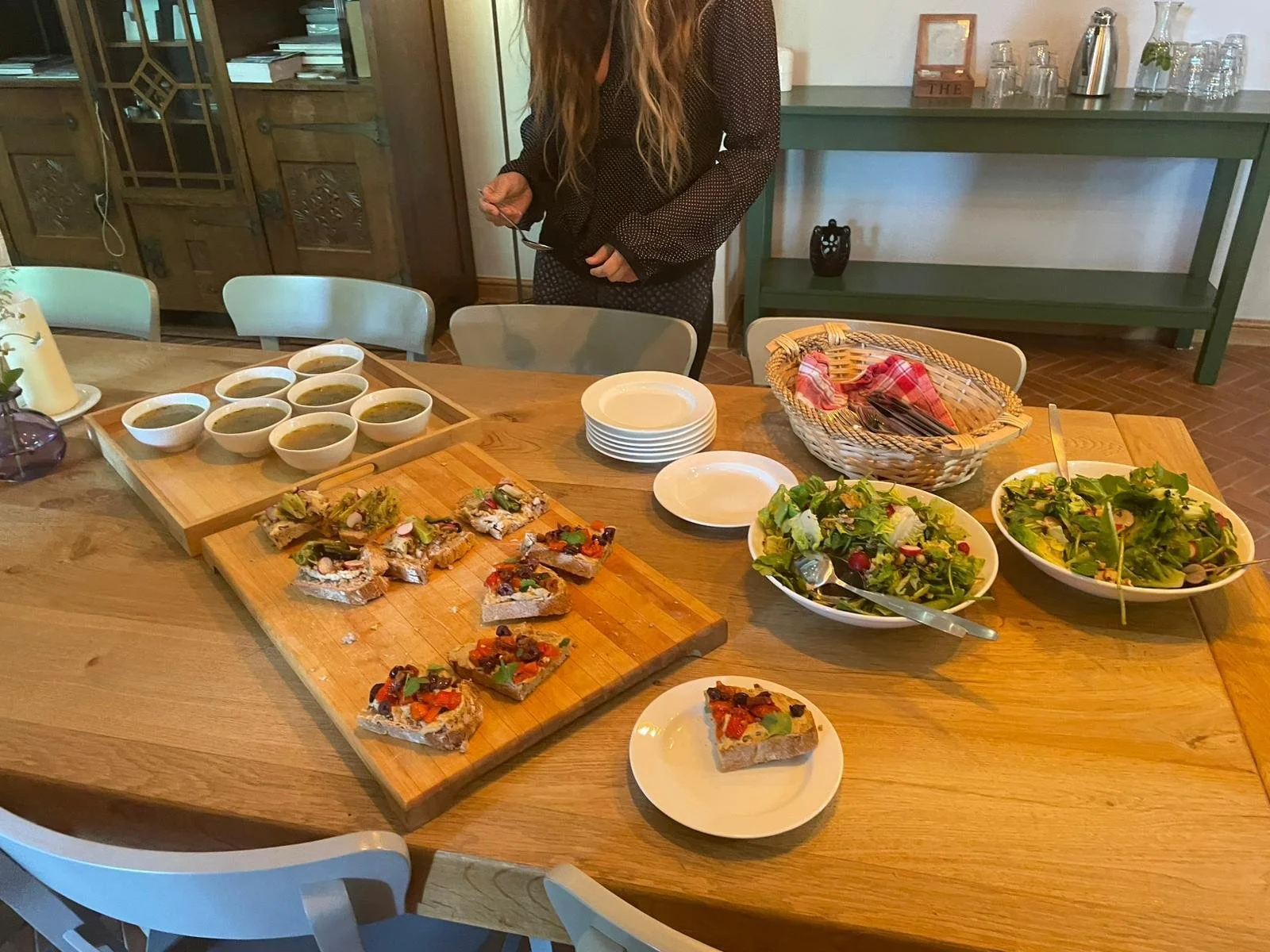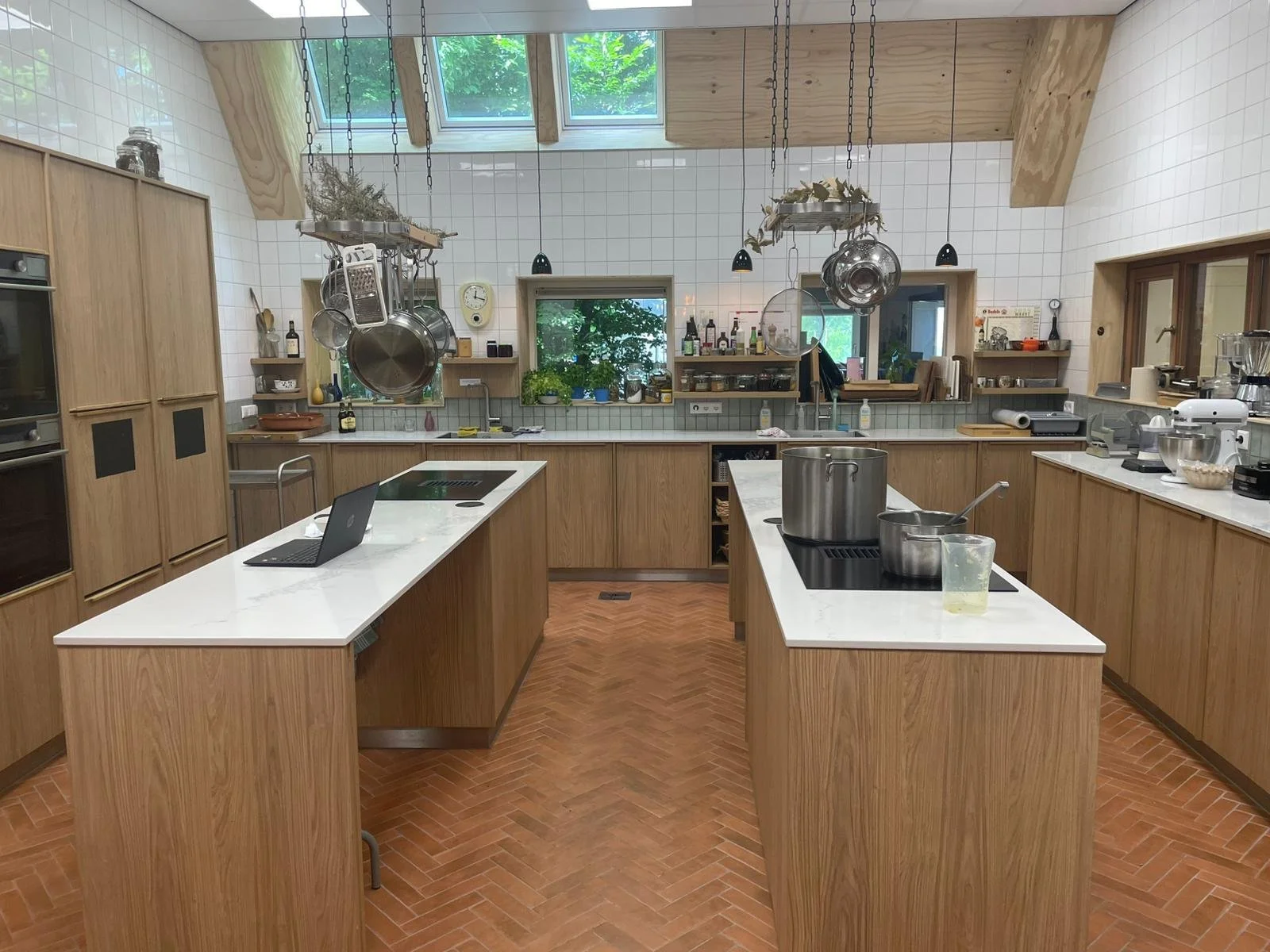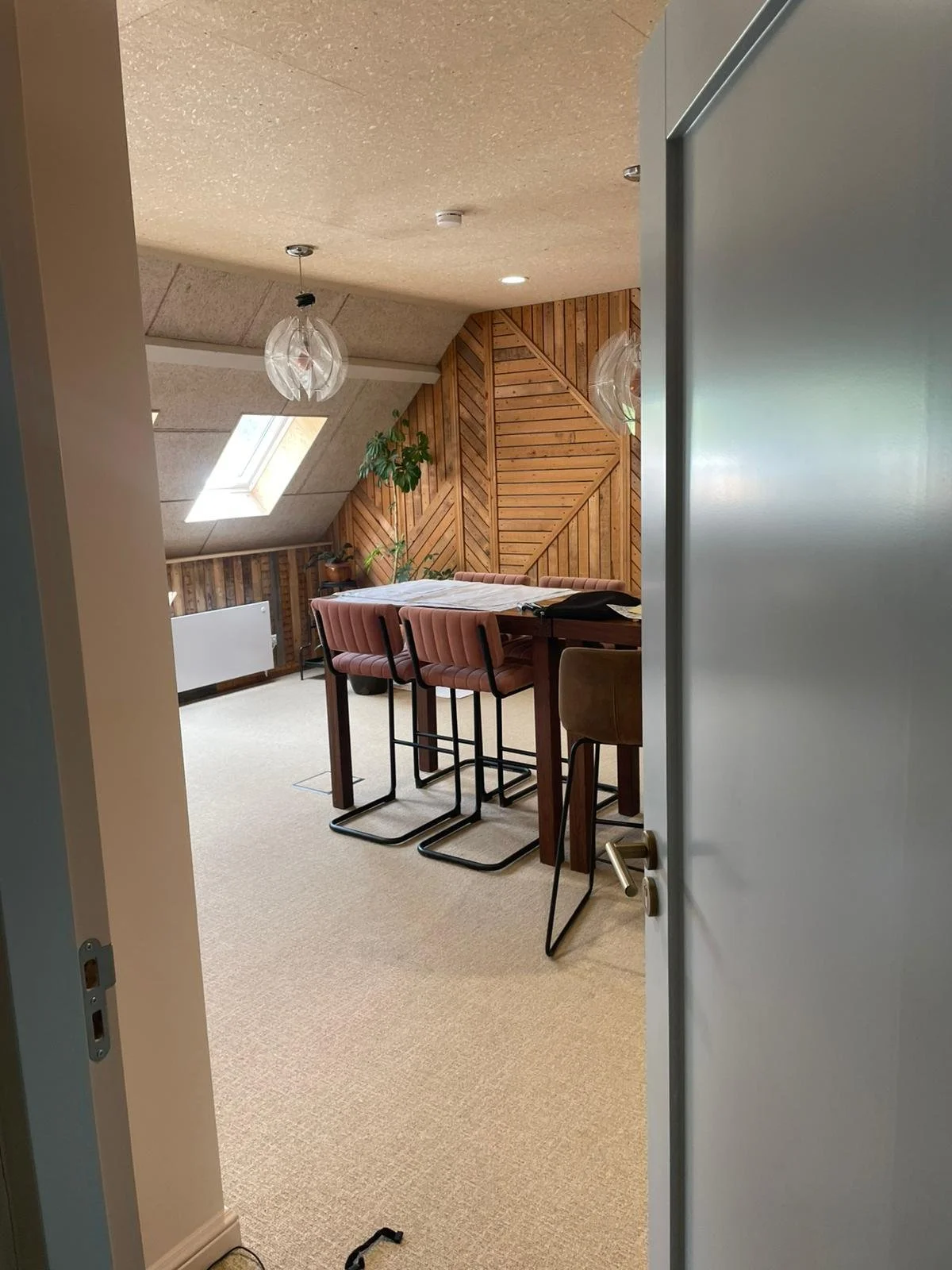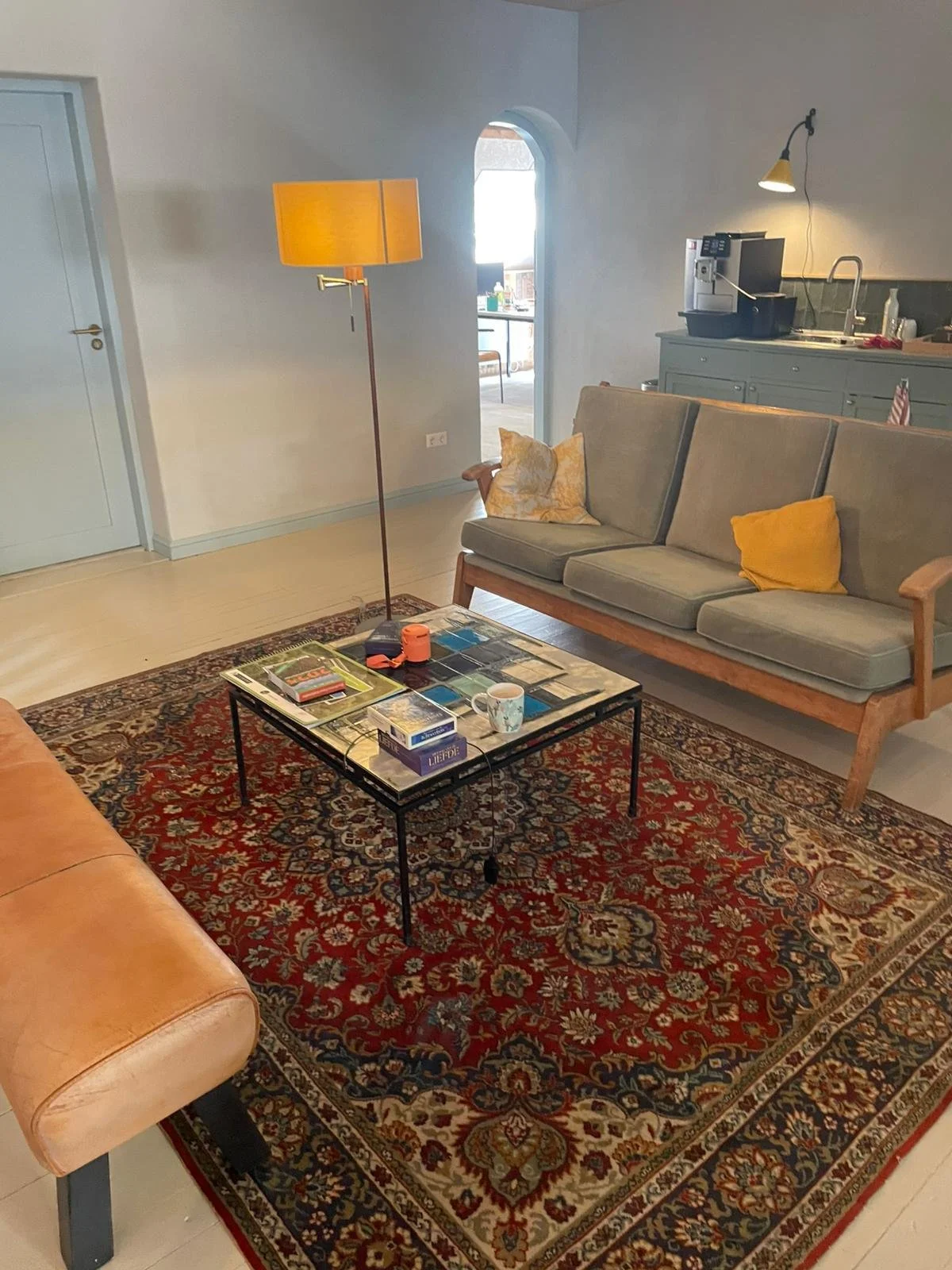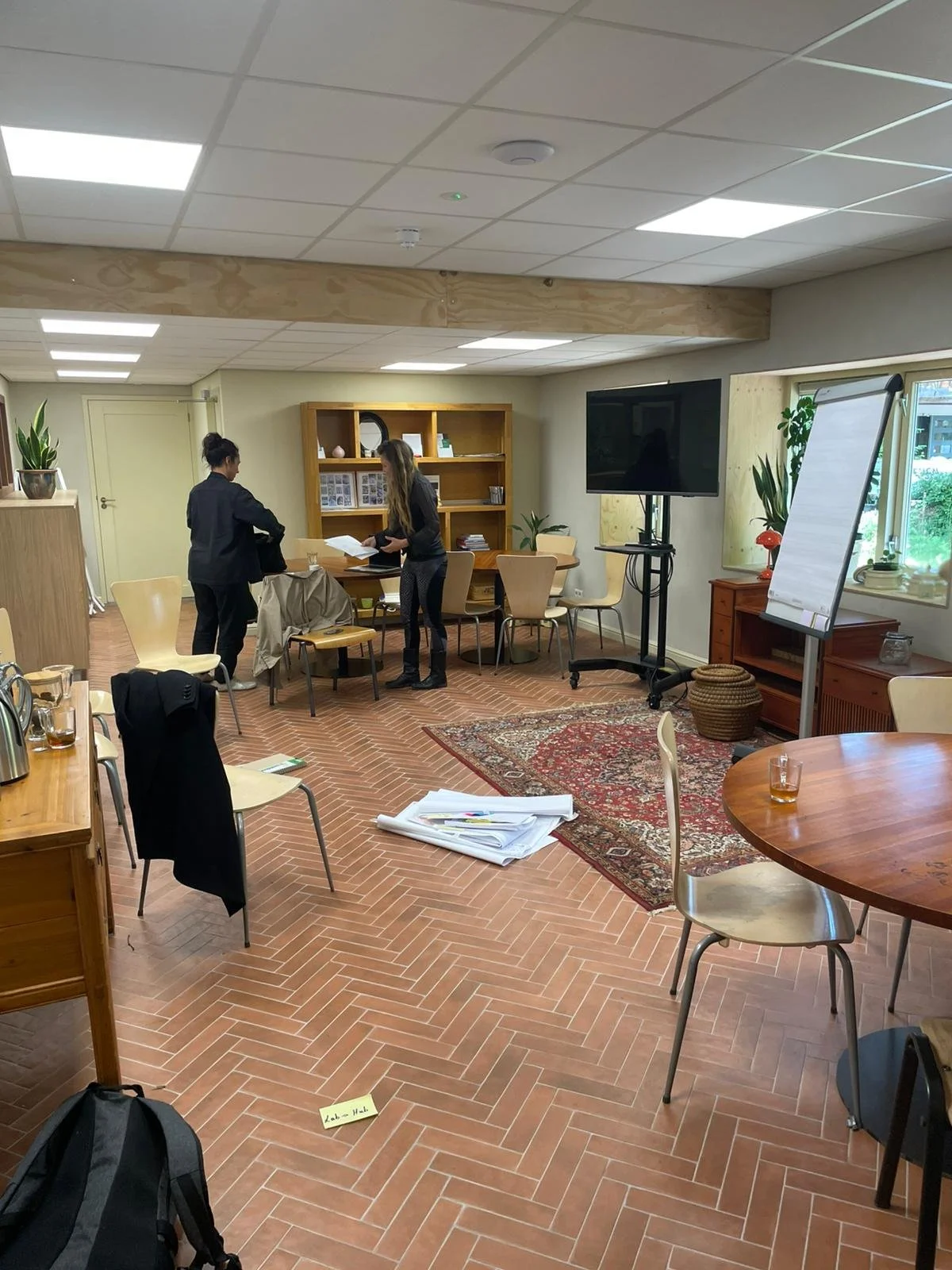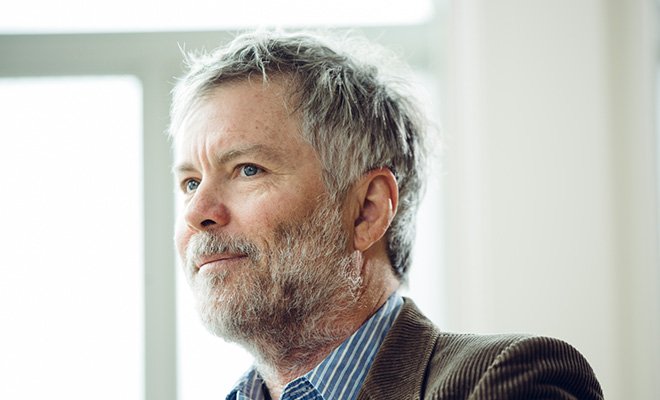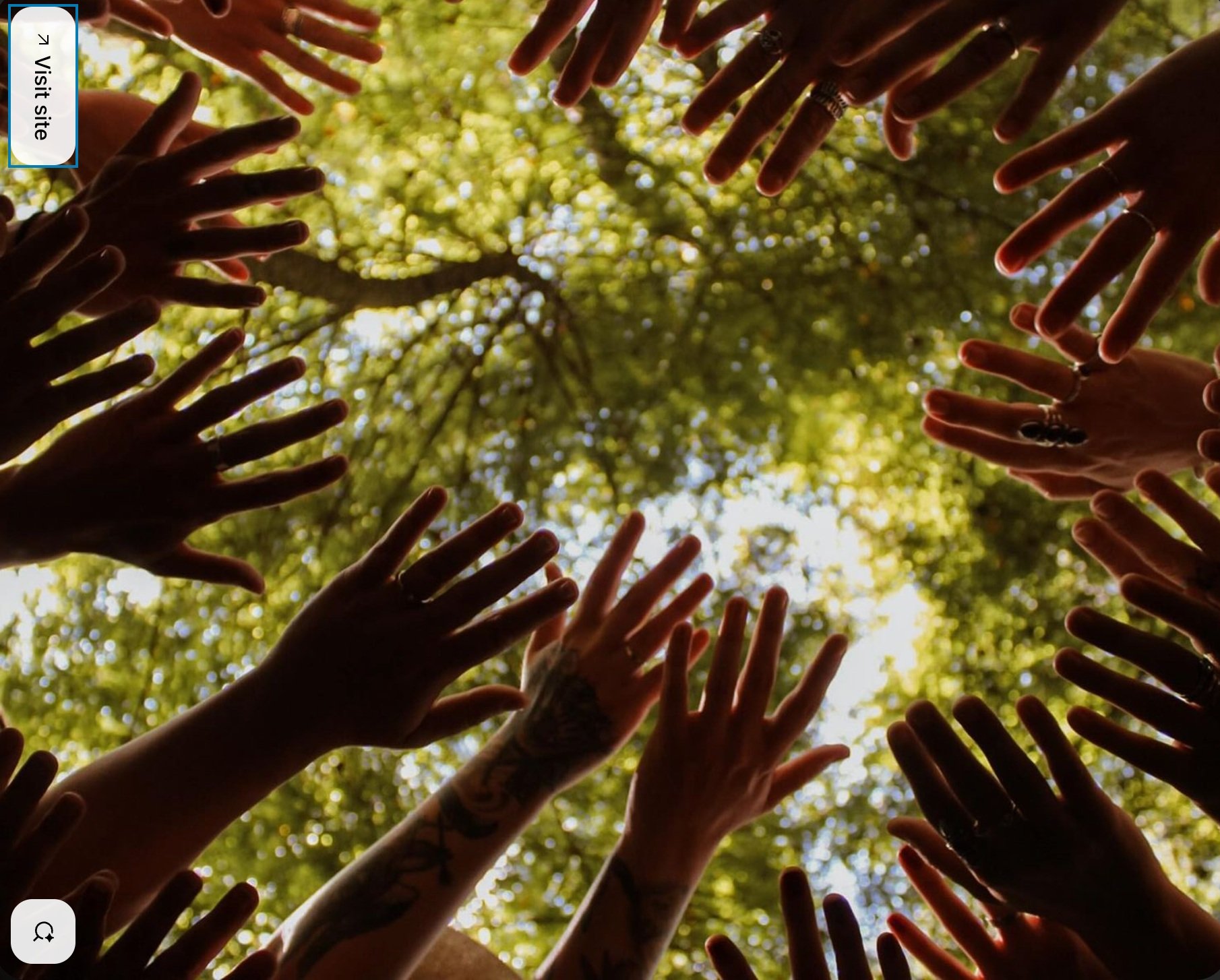
Finding Common Ground: Short Course on Commons, Conviviality & Community
19th – 22nd August 2025
The Netherlands
In these times of strife, discord, and confusion, how can we create common ground on which we cultivate the conditions for flourishing lives — in ourselves, our communities, and the ecosystems we depend on? Finding meaningful answers to this question feels more urgent than ever if we’re to chart pathways to better futures.
Together, we’ll explore not only how to build this common ground, but also how to reconnect with our own personal sense of purpose and learn what it means to create with others — with care, courage, and imagination. Along the way, we’ll discover that there are many pathways forward — and that we don’t have to walk them alone.
We’ll explore the themes of commons, conviviality, and community, grounded in nature connection, relational governance, and phenomenological approaches. We’ll discover more questions along the way - how can we develop our intuitions about ‘community’ and bringing people together for common purpose? We’ll call upon some useful wisdom from Elinor Ostrom and EF Schumacher, as well as dozens of other thinkers. And we’ll experience an embodied, holistic approach to learning that will, in itself, become an important part of our living inquiry.
This course is an exciting collaboration of Schumacher Action Labs (NL), Schumacher Center for New Economics (USA), and Schumacher Wild, the ‘regeneration phase’ of world renowned Schumacher College (UK). This new initiative strengthens our translocal partnerships and helps grow the European learning ecosystem we’re co-creating — one rooted in care, participation, and lived experience. Is this kind of learning needed in the world in these times? Might this course be a spark that helps it spread far and wide? Come and be part of something wonderful.
This course is for:
land stewards and commoners whose hands are dirty and boots muddy
artists and activists who imagine new possibilities
educators and researchers asking questions
bioregionalists and place-based changemakers
community organisers and citizens of the world getting on with it
regenerative entrepreneurs and progressive policy makers
anyone seeking to explore how commons-based practices can nurture social and ecological renewal.
What you will learn and experience:
Conceptual frameworks & tools
A working knowledge of key approaches to transforming our relationships with land and each other, including commons and commoning, bioregionalism and bioregioning.
A renewed understanding of essential concepts like conviviality, community, human needs, wellbeing, agency and justice, and how they interconnect.
Real-world examples & financial pathways
Familiarity with inspiring cases where these ideas are already making a tangible difference.
Insight into financing regenerative and commons-based initiatives, including introductions to relational finance models that move beyond extraction toward funding rooted in trust, reciprocity, and long-term stewardship. Discover how to create financial ecosystems that genuinely support community and land-based initiatives.
Personal, relational & embodied learning
A new appreciation for life and a deeper connection with the more-than-human world through nature experience.
Experience with holistic, participatory learning methods that engage head, heart and hands.
Renewed hope, purpose and new friendships, carried forward beyond the course.
Venue
We’ll be at the historic permaculture center Kleine Aarde (https://plaatsdekleineaarde.nl/) in Boxtel, NL. The setting will inspire with gardens, trees, green building, and a heritage that links permaculture, ‘Small is Beautiful’, and the deeply held mission to be a catalyst for transforming our food system. At Kleine Aarde we will create for a few days an experience of living together for the common good.
Accommodation
During the course, we’ll be living together on common ground — sharing space, stories, and meals. Accommodation is simple and comfortable, with dormitory-style sleeping arrangements (2–4 people per room). Private rooms are available for those who prefer a quieter space for rest and reflection. All meals are organic, vegetarian, and served communally, with vegan options available. Snacks and drinks are also included.
Book This Course
We aim to make this course accessible while covering the real costs of good food, comfortable accommodation, and thoughtful facilitation. Our pricing structure reflects a balance between economic reality and our commitment to solidarity.
You can choose the accommodation option that fits your needs:
£850 – Solidarity Rate (Private Room), A quiet space of your own for rest and reflection — and a way to support others through a higher contribution.
£750 - Private Room, A quiet space of your own for rest and reflection.
£650 - Shared Room (2–4 people), A comfortable shared room with others participating in the course.
£500 - Youth & Emerging Organisers (Shared Room), A reduced rate for participants under 30 or early in their organising or professional journey.
All fees include:
Three nights of accommodation
All organic, seasonal meals (breakfast, lunch,dinner)
Unlimited coffee, tea, fruit and snacks throughout the day
Full access to the programme of workshops and embodied learning sessions
Use of the grounds and indoor spaces at De Kleine Aarde
Facilitation by an experienced and international team
Connection with a diverse group of people committed to regeneration, the commons, and systems of care
Solidarity & Limited Bursaries
As part of our commitment to solidarity, we have a limited number of partial bursaries available for grassroots organisers and activists without access to institutional support.
If your work aligns strongly with the themes of this course and cost is a genuine barrier, you may write to us with a short motivation. We will do our best within our means, but we are unable to offer full scholarships.
To inquire about a partial bursary, contact us before 24th of July at natashahulst@centerforneweconomics.org
Faculty
David Bollier (online)
David Bollier is Director of the Reinventing the Commons Program at the Schumacher Center for New Economics in the U.S. He’s an author, activist, blogger and independent scholar with a primary focus on the commons, as well as co-founder of the Commons Strategies Group, an advocacy/consulting project supporting the commons movement.
Emma Kidd
Emma co-led the Ecological Design Thinking program at Schumacher College, focusing on meta-design as a practice that fosters awareness of the interconnectedness between being, knowing, and doing. She is passionate about practices that cultivate attention and awareness, allowing for a deeper understanding of life—human and more-than-human.
Jay Tompt
Jay led the MA Regenerative Economics program at Schumacher College. He is a co-founder of several place-based regenerative economics initiatives. He is also an associate lecturer in economics at Plymouth University.
Natasha Hulst
Natasha is a systems convener, commoner, social entrepreneur, and regenerative strategist with over 20 years of experience at the intersection of food systems, commons governance, and regenerative finance. She is the cofounder of Schumacher Action Labs and has worked with the Schumacher Center for a New Economics since 2019 to advance community-rooted economic models across Europe.
And more…
Schumacher Action Labs
Schumacher Action Labs is a practitioner-led space for transformational learning and life-centered action. More than an organization, it is a bold and trust-based platform that convenes diverse changemakers to co-create context-specific solutions. We don’t offer blueprints—we foster conditions for collective wisdom, peer governance, and creative experimentation to thrive. Rooted in commons thinking, post-growth economics, and ecological regeneration, Schumacher Action Labs connects people working across urban commons, agroecology, Indigenous science, open-source production, and cultural practice. Our aim is to shift not only systems, but the very context in which politics, culture, and economics are imagined and enacted.




